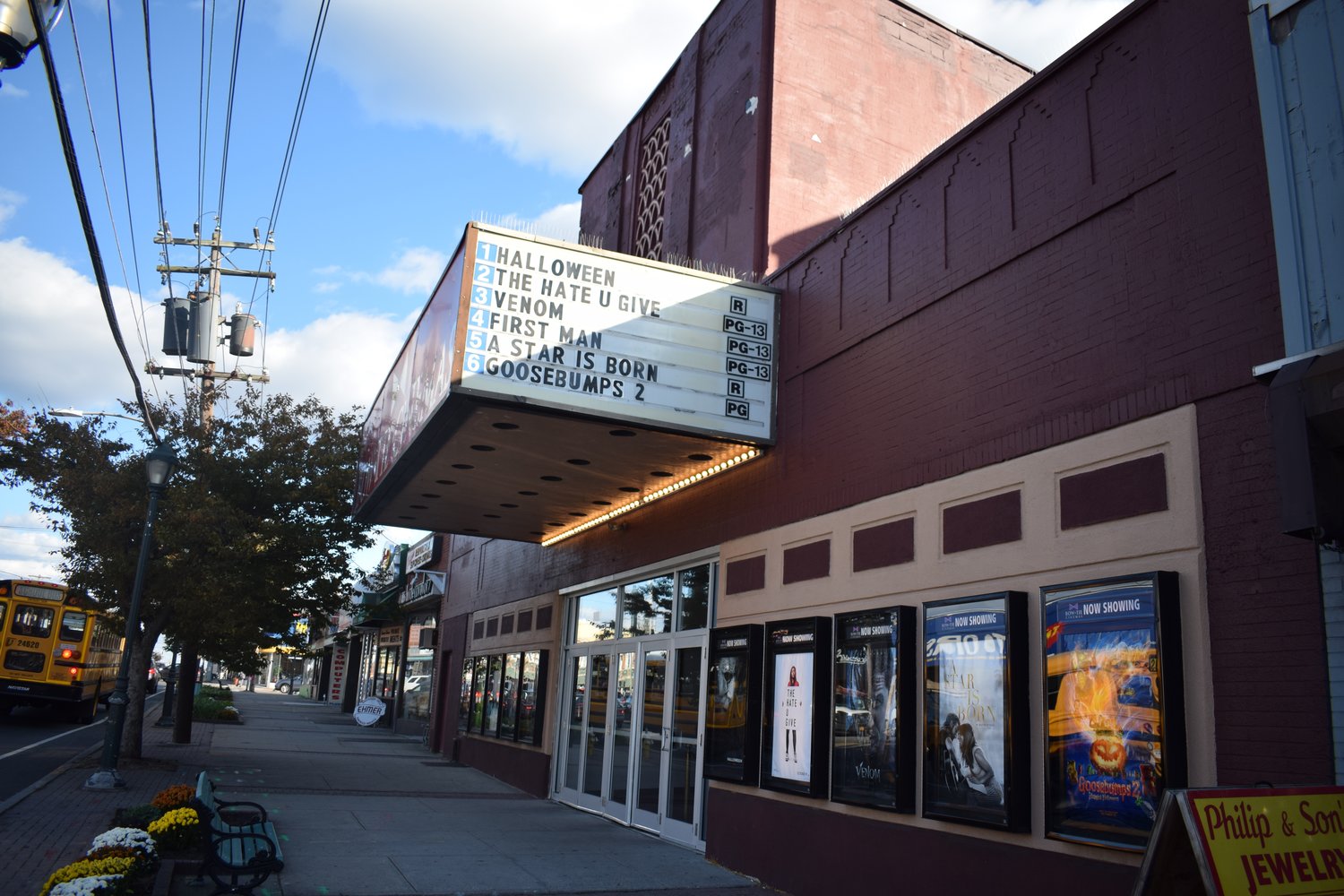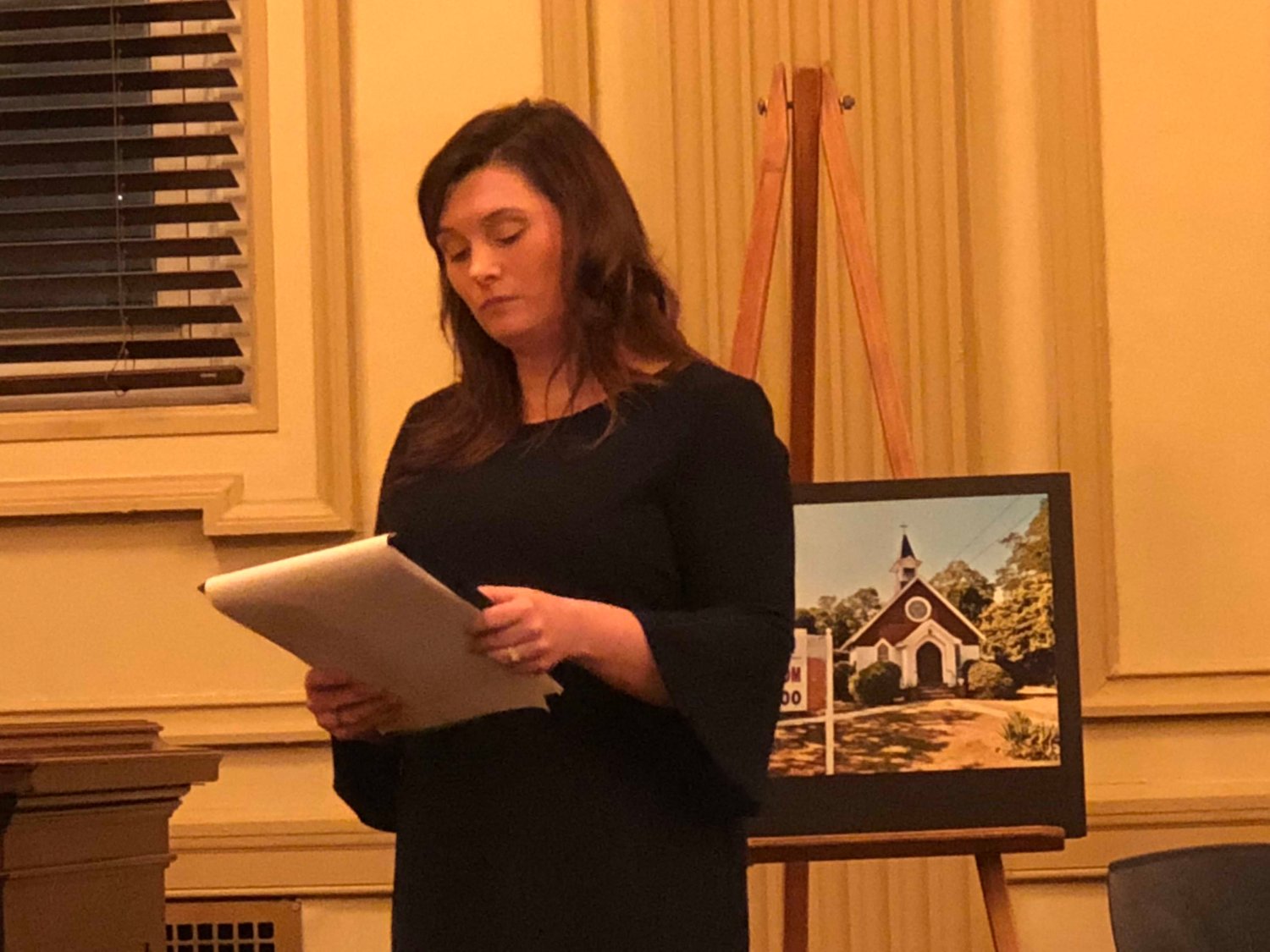Making a case for Franklin Square history
Town considers F.S. theater for landmark status
The Town of Hempstead Landmark Preservation Council unanimously voted on Nov. 20 to proceed with a hearing next year to consider whether to grant a Franklin Square movie theater historic landmark status, which would help protect it in the future.
At the meeting, the council heard from Franklin Square residents and a representative of the building’s owner, Nauman Hussain, on whether the theater deserved the status.
The meeting came after Hussain submitted plans in September to construct a three-story, self-storage building adjacent to the theater, now called the Franklin Square Bow Tie Cinemas. Although Hussain and his representatives have said there are no current plans to redevelop the theater, local residents have expressed concern that he might alter or demolish the structure, which has stood in the community for more than 80 years.
“We want to preserve the character of the neighborhood,” Katherine Tarascio said.
Tarascio, who represented the Franklin Square Civic Association, argued that the theater’s architecture and history were factors that should be considered in its potential protection as a landmark. In her presentation to the Town’s Landmark Preservation Council, Tarascio explained that the theater was one of more than 50 movie houses built by Long Island movie mogul Abraham Schwartz in the 1930s, and that it was also one of the few buildings originally constructed in the art-deco style.
“There was a long-standing search among architects for a style that was distinctly American, and art deco was argued by some to be the culmination of that effort,” Tarascio said. “Art deco was a statement of modernity and progress.”
Not only are art-deco buildings now scarce in Hempstead
— a local survey by the FSCA found only five examples of the style — but historic theaters such as Franklin Square’s are also rare. Of the dozen longstanding theaters in the town, the only two still operating are Franklin Square’s and Malverne’s. All others have either been demolished or closed.
Margaret Kelly, another resident and member of the Garden City South Community League, added that the theater already serves as a local landmark, as it is one of the tallest buildings in the area. With a compilation of memories of the theater submitted by local residents, Kelly asked that the Landmark Preservation Council consider what the movie theater means to the community when reaching its decision.
Council member William Muller explained, however, that landmark status would not halt any changes to the interior, only the exterior.
“The board will be swayed by [the structure’s] history rather than on personal narratives,” Muller said. “The focus is not on whether or not this continues to be a theater, but on whether or not the architecture and structure deserve to be preserved.”
Attorney Wayne Edwards represented Hussain at the meeting. He argued that the structure did not deserve to be preserved because of various alterations made to it throughout the decades. Edwards said that after the removal of its marquee in 1963 and its balcony in 1984 to change the theater into a duplex configuration, as well as its gutting in 1995 to fit more screens, the building is now a shell of its former self, adding that weathered paint hides its art-deco brickwork.
“Whatever relevance existed in the theater was lost at that point in time,” Edwards said. “Schwartz would have no recognition of that building if he drove by today.”
Tarascio said the Franklin Square theater still retains much of its 1930s exterior look, notably its original brickwork, including the repeating decorative arch motif on the top-center of the building. It was details like this that pushed the Landmark Preservation Council to call an official landmark hearing for the theater in 2019, members said. Once the council decides, it will present its recommendation to the Hempstead Town Board, which will determine whether to grant the building landmark status.
Edwards noted, however, that even if the theater were to be granted the status, Hussain was under no obligation to keep it if the current occupants, Bow Tie Cinemas, were to move out once the company’s lease expired.

 50.0°,
Fair
50.0°,
Fair 







